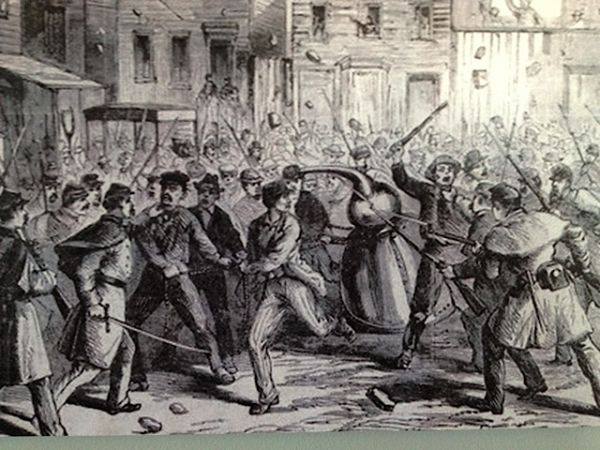Maybe you’ve heard about the Whiskey Rebellion of 1794, but the Whiskey Wars?
October, and conversations with people about pre-Prohibition whiskeys, got me thinking about the Whiskey Wars.
They began in October of 1869 when army veterans found nine stills in an alley after a knife fight. There were many many illegal stills in NYC at the time and most of them were located in Vinegar Hill or “Irishtown.” Distilling was legal at the time, but the problem wasn’t with whiskey, it was with taxes. Distillers hadn’t seen their whiskey taxed from 1817 until 1862 and had become used to their profits. The Civil War created a desperate need for government revenue and taxes went from zero to 20 cents per 100-proof gallon. By 1868 it had gone up to $2.00 which is equal to $30 today. (modern taxes are more like $13.50) The tax was lowered to closer to a dollar, which helped encourage payments, but distillers were feeling extorted. Just like in the years after excise taxes were established to pay for the Revolutionary War, these new Civil War excise taxes on whiskey were fought with hostility.
The government formed the Bureau of Internal Revenue( later became the IRS). They couldn’t exactly audit any of these illegal tax dodgers, so they raided the distilleries and demolished them instead. On November 2, 1870, government soldiers left the Brooklyn Navy Yard with muskets, axes and bludgeons in search of contraband. You can imagine how the community responded to this.
Alcohol taxes were a huge part of the government’s funding at the time. Excise taxes produced at least 20% of its entire revenue. (Before Prohibition that number grew closer to half of the government’s entire budget.) A good deal of the neighborhoods of New York successfully paid off police to tip them off to raids, which usually helped them avoid being caught, but did not stop soldiers from destroying their heavy equipment.
Distillers had lots of connections not only to the police departments, but to government officials as well. These made men lived like kings. the thing that always amazed me was the fact that Ulysses S. Grant was the man that authorized these raids. He’s also the man that held presidential office between 1869-1877 and presided over the Whiskey Ring Scandal. Orville E. Babcock, his private secretary was indicted for involvement n the scandal. All the history books say Grant wasn’t involved, but I, for one, find that VERY hard to believe. Grant was a notorious whiskey “enthusiast.” Sure Grant hired prosecutors to get indictments, but he later fired his special prosecutor for challenging his right to interfere with prosecutions.
Corruption and whiskey always seem to find each other in American history…
